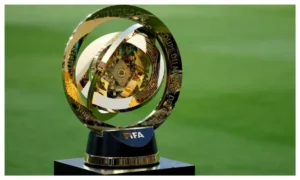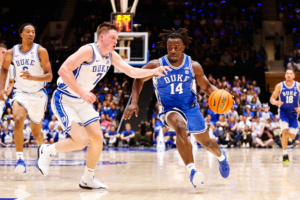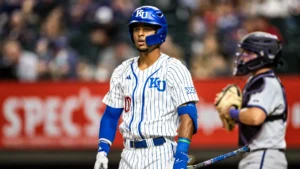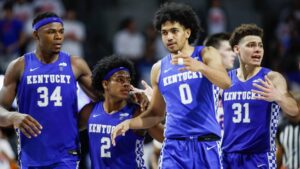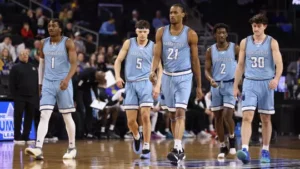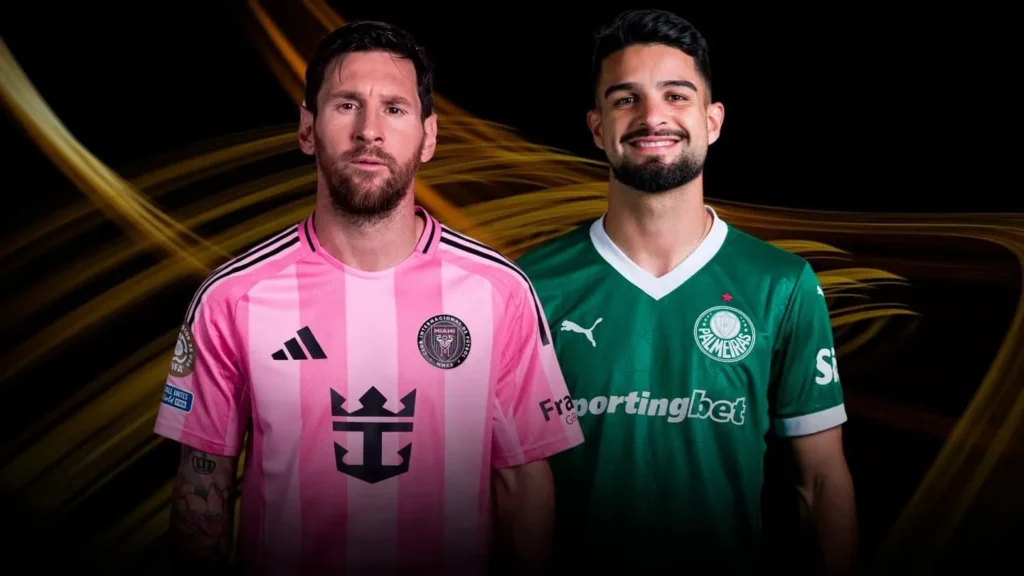
As the 2025 FIFA Club World Cup continues to unfold with passion, history, and high stakes, few matchups have captured the imagination of fans quite like the clash between Inter Miami and Palmeiras. A game that epitomizes not just a meeting of two football teams but of two continents, cultures, and approaches to the game. Inter Miami, the rapidly ascending giant from Major League Soccer, and Palmeiras, the Brazilian powerhouse steeped in tradition and success, locked horns with a place in the tournament’s knockout phase at stake.
Both sides came into the match with identical records from the group stage — one win and one draw — meaning that qualification for the semifinals depended entirely on the outcome of this encounter. Neither team could afford to sit back. A draw might have sufficed depending on goal difference, but victory would ensure top spot in the group, possibly avoiding a more difficult opponent in the next round. With the prestige of being Club World Champion looming, the motivation could not have been higher.
From the outset, this was a meeting of contrasting footballing philosophies. Inter Miami, under the guidance of coach Javier Mascherano, arrived as one of the most star-studded teams in the tournament. Featuring the likes of Lionel Messi, Luis Suárez, and Sergio Busquets — all seasoned veterans of European and international glory — the team had evolved into a unique MLS powerhouse. Their tactical foundation was built on possession play, intricate passing, and relying on the individual brilliance of its elite attackers to unlock tight defenses.
Palmeiras, meanwhile, came into the match with the aura of South American resilience. Having built a reputation in recent years for being one of Brazil’s most disciplined and tactically mature teams, they posed a challenge that was as mental as it was physical. Under the leadership of coach Abel Ferreira, Palmeiras emphasized defensive organization, rapid transitions, and clinical finishing. They boasted a balanced side — technically gifted midfielders, a solid defensive line led by Gustavo Gómez, and dynamic forwards like Endrick and Rony capable of breaking open games with explosive pace.
The early stages of the match reflected the tactical identities of both teams. Inter Miami looked to dominate possession, probing the Palmeiras backline with short, purposeful passes. Messi operated in the half-spaces, seeking to combine with Suárez and Campana, while Busquets acted as the fulcrum, distributing play from deep. Palmeiras, unfazed by the ball control, maintained a compact shape, absorbing pressure and waiting for the right moment to spring forward on the counterattack.
Palmeiras had the first clear chance of the match. A turnover in midfield allowed Raphael Veiga to surge forward and play a diagonal ball behind Miami’s defensive line. Rony latched onto it and fired a low shot that forced a sharp save from Miami goalkeeper Drake Callender. The warning shot was a clear signal of Palmeiras’ intent — they could strike with little notice.
Miami responded through Messi, who danced past two defenders before curling a shot toward the far corner, only to be denied by Weverton’s fingertips. The crowd, split in allegiance, roared with appreciation for the moment of brilliance. These sparks of magic underscored the spectacle of the contest: a game of patience, but also one of individual talent threatening to tip the balance at any moment.
As the first half wore on, Inter Miami grew more dominant in possession, but Palmeiras’ defensive structure held firm. Their center-backs read the game exceptionally well, cutting off passing lanes and forcing Miami to circulate the ball without penetration. The midfield trio of Zé Rafael, Gabriel Menino, and Veiga were tireless in their pressing and positioning, never allowing Miami’s playmakers time or space to dictate terms.
Despite the cagey nature of the half, the deadlock was broken just before the interval. In the 43rd minute, a quick Palmeiras transition saw Endrick receive the ball near midfield. The young Brazilian phenom burst forward with pace, shrugged off a challenge from Yedlin, and played a perfectly weighted through ball to Veiga, who calmly slotted the ball past Callender. The goal was a clinical reminder of Palmeiras’ efficiency: absorb pressure, then strike with precision.
The halftime whistle saw Miami trailing 1-0, with questions raised about how they would respond. Mascherano, never one to panic, made tactical adjustments. He introduced Josef Martínez for Campana to inject energy up front and shifted Messi slightly deeper to facilitate ball progression. The adjustment worked almost immediately.
Within ten minutes of the second half, Miami found their equalizer. A sustained period of possession forced Palmeiras into retreat. Busquets, now finding space, chipped a lofted pass over the defense. Suárez controlled it with his chest and laid it off to Messi, who took a touch and curled an unstoppable shot into the top corner. The stadium erupted as Messi, once again, turned the tide of a crucial match.
With the game level at 1-1 and both sides knowing that goal difference might not be enough to see them through, the tempo increased. Palmeiras responded with urgency, bringing on fresh legs in the form of Artur and López, while Miami kept pushing with Taylor and Arroyo supporting the attack. The final thirty minutes became an open, end-to-end affair, with chances flowing at both ends.
Palmeiras came close again through Endrick, who struck the post after a dazzling solo run. Miami had their moment when Messi threaded a through ball to Martínez, whose finish beat Weverton but was ruled offside by the narrowest of margins. The margins in these high-stakes contests are razor-thin, and both teams knew it.
The midfield battle was fierce, with fouls beginning to pile up. Yellow cards were shown to both sides as the game edged into its final phase. Fatigue set in, and space began to open up. Inter Miami looked likelier to score, with Messi pulling strings and Suárez battling relentlessly. Yet Palmeiras’ defense continued to stand tall, particularly Gustavo Gómez, who made a series of crucial interceptions.
In the 85th minute, the defining moment arrived. A corner for Palmeiras was only partially cleared. The ball fell to Gabriel Menino on the edge of the box, who struck it first time. The ball deflected off Yedlin’s boot, wrong-footing Callender, and nestled into the back of the net. Palmeiras led 2-1, and Miami’s task grew even taller.
Mascherano threw caution to the wind, committing numbers forward in search of another equalizer. Messi dropped deep to orchestrate, while even the fullbacks pushed into advanced positions. In the dying moments, Inter Miami won a free kick 25 yards out — prime territory for Messi. The stadium fell silent as he stepped up, struck the ball with trademark curl — and it kissed the outside of the post.
The final whistle confirmed Palmeiras’ victory. A hard-fought 2-1 win secured their place atop the group and booked their ticket to the semifinals. Inter Miami, while disappointed, were not out — their qualification now rested on other results, and potentially goal difference. Yet the performance earned them respect, showing that the American club could go toe-to-toe with South America’s finest.
Statistically, the match was as even as the scoreline suggested. Inter Miami had 56% possession, 13 shots with 6 on target, and an xG of 1.7. Palmeiras recorded 11 shots, 5 on target, and an xG of 1.5. Tackles, fouls, and interceptions were nearly identical, reflecting a fierce, balanced battle. While Palmeiras edged the scoreboard, both teams walked away with their heads held high.
Looking forward, Palmeiras will face a likely semifinal opponent in PSG or Botafogo. Their ability to defend as a unit, strike in transition, and capitalize on set pieces makes them a dangerous team for anyone. For Inter Miami, assuming they progress, the experience against Palmeiras will serve as a key learning moment — a test of their tactical flexibility, mental toughness, and ability to adjust under pressure.
What the match confirmed above all is that the new-look Club World Cup is living up to its billing. No longer just a formality for European and South American teams, it is now a legitimate battleground where teams from around the globe can test themselves. Inter Miami, with its mixture of aging brilliance and youthful hunger, has proven it belongs. Palmeiras, with its deep squad and battle-tested approach, confirmed why Brazilian football remains among the best in the world.
In the end, the clash between Inter Miami and Palmeiras delivered on all fronts — drama, skill, tactical battles, and moments of sheer brilliance. The stakes were high, and both teams rose to the occasion. For fans across the world, it was a reminder of what makes football the most beloved sport on the planet.
